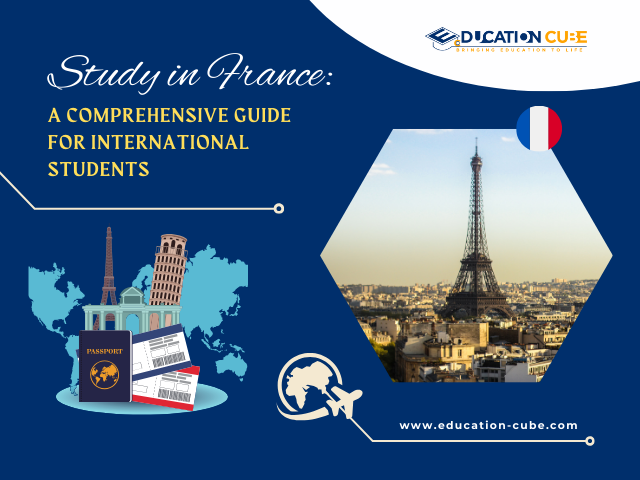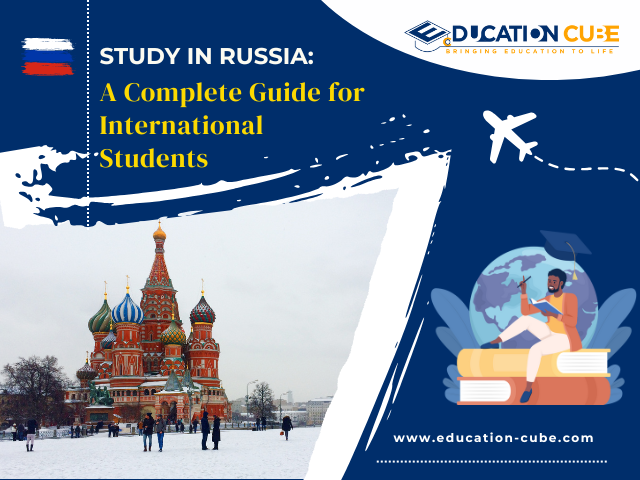
International Relations & Political Science: Studying Global Affairs Abroad
In today’s interconnected world, the decisions of one nation often ripple across borders. Understanding these dynamics is crucial whether it’s climate agreements, global trade, diplomatic tensions, or humanitarian crises. That’s where the fields of International Relations (IR) and Political Science come in, offering insight into how nations interact and how policies shape societies.
Studying these subjects abroad gives students a global perspective on diplomacy, governance, and transnational challenges. With the world’s most prestigious institutions offering cutting-edge programs, international study can help cultivate cross-cultural awareness, critical thinking, and leadership skills needed to influence international policy and global change.
Why Study International Relations and Political Science Abroad?
- Global Perspective: Understand how political systems operate in different regions and how international issues are managed collaboratively or in conflict.
- Networking Opportunities: Build relationships with peers, professors, and global professionals in diplomacy, international NGOS, and political institutions.
- Exposure to Policy-Making Centers: Study in cities hubs for international politics, such as Washington D.C., London, Brussels, or Berlin, and offer internships at embassies, think tanks, or international organizations.
- Multidisciplinary Approach: Programs often integrate economics, history, law, and sociology for a comprehensive understanding of international affairs.
- Career Versatility: Graduates are equipped to work in diplomacy, research, international law, public administration, journalism, and humanitarian work.
Top Countries to Study International Relations and Political Science
1. United States (USA)
The U.S. is home to many global policy think tanks and international organizations, making it ideal for those seeking practical exposure and academic excellence.
Top Institutions:
- Harvard University
- Georgetown University (School of Foreign Service)
- Johns Hopkins University (SAIS)
- Columbia University
Highlights:
Intense academic research, access to international agencies and internships, and a policy-oriented curriculum
2. United Kingdom (UK)
The UK’s deep-rooted political history and global diplomatic influence make it a sought-after destination for political studies.
Top Institutions:
- London School of Economics and Political Science (LSE)
- University of Oxford
- University of Cambridge
- King’s College London
Highlights:
Focus on international law, European studies, global governance, and conflict resolution.
3. Germany
Germany plays a key role in European and global politics and offers affordable or free education at world-class public universities.
Top Institutions:
- University of Heidelberg
- Humboldt University of Berlin
- Freie Universität Berlin
Highlights:
Strong focus on EU politics, peace and conflict studies, and public policy, with many programs offered in English
4. France
France is a central player in international diplomacy and is home to global institutions like UNESCO and the OECD.
Top Institutions:
- Sciences Po (Paris Institute of Political Studies)
- Paris School of International Affairs
- University Paris 1 Panthéon-Sorbonne
Highlights:
Multilingual education, connections to international organizations, and a strong foundation in political philosophy and diplomacy
5. Canada
Canada’s multicultural environment and decisive role in peacekeeping make it an excellent place for IR and political science education.
Top Institutions:
- University of Toronto
- McGill University
- University of British Columbia
Highlights:
Programs that integrate human rights, global development, and international security, with research-driven teaching
Popular Courses and Specializations
- Bachelor’s in International Relations or Political Science
- Master’s in Global Governance or Public Policy
- International Law and Human Rights
- Conflict and Peace Studies
- Diplomacy and Foreign Policy
- Global Security and Strategic Studies
Courses often include simulations, debates, field trips to international institutions, and capstone research projects.
Career Opportunities
Graduates of International Relations and Political Science programs are well-equipped to pursue careers in:
- Diplomacy and Foreign Services
- International Non-Governmental Organizations (NGOS)
- Policy Analysis and Research
- Public Affairs and Government
- International Journalism
- Humanitarian and Development Work
- Think Tanks and International Organizations (e.g., UN, WTO, IMF)
Professionals may also go on to earn law or public administration degrees or work as consultants for multinational organizations.
Tuition Fees and Scholarships
Average Annual Tuition Fees:
- USA: $30,000 – $60,000
- UK: £15,000 – £35,000
- Canada: CAD 20,000 – CAD 40,000
- Germany: Often free or under €1,000 (public universities)
- France: €3,000 – €12,000 (depending on the institution)
Scholarships:
- Fulbright Scholarship (USA)
- Chevening Scholarship (UK)
- DAAD (Germany)
- Eiffel Excellence Scholarship (France)
- Vanier Canada Graduate Scholarships
Eligibility and Admission Requirements
Undergraduate:
- High school diploma with a strong academic record
- English proficiency (IELTS/TOEFL)
- Personal statement or motivation letter
- Letters of recommendation
Postgraduate:
- Bachelor’s degree in Political Science, IR, or a related field
- GRE or GMAT (some institutions)
- Work experience (preferred for mid-career programs)
- SOP and academic transcripts
Conclusion
Professionals who understand global politics, negotiation, and diplomacy are more critical than ever in a rapidly changing world. Studying International Relations and Political Science abroad allows students to step into the heart of global affairs, gaining insights and experiences that shape them into influential global citizens.
Whether your goal is to serve your country, join the United Nations, or influence international development, a degree in this field is your passport to global impact. With the proper education and international exposure, you can help shape policies, solve conflicts, and build bridges between cultures.
FAQs
1. What jobs can I get with an International Relations or Political Science degree?
Graduates can work in diplomacy, foreign services, research, public policy, NGOS, journalism, or international organizations like the UN or WTO.
2. Is it better to study IR in a politically active country?
Yes. Studying in countries like the US, UK, or Germany can provide access to political institutions, global events, and internships with influential organizations.
3. Do I need to learn another language for IR programs?
While many programs are in English, knowing an additional language can enhance your opportunities, especially in diplomacy and global roles.
4. Can I work while studying IR abroad?
Yes, most countries allow international students to work part-time. Some programs also include internships or co-ops.
5. What’s the difference between Political Science and International Relations?
Political Science focuses on domestic and international politics, government systems, and political theory. IR is a subset of Political Science focused on relations between countries, diplomacy, and global institutions.
 Global Pharmacy Programs: Elevate Your Career with World-Class Education and Practical Exposure
Global Pharmacy Programs: Elevate Your Career with World-Class Education and Practical Exposure
 Artificial Intelligence (AI) and Machine Learning (ML) Careers: Building the Future of Innovation
Artificial Intelligence (AI) and Machine Learning (ML) Careers: Building the Future of Innovation
 Beyond Rankings: How to Choose the Right Country and University for Higher Studies
Beyond Rankings: How to Choose the Right Country and University for Higher Studies
 Study Cloud Computing Abroad: Destinations, Courses, Careers & Trends for 2025
Study Cloud Computing Abroad: Destinations, Courses, Careers & Trends for 2025
 Choosing the Right Stream After Class 10: A Comprehensive Guide for Students
Choosing the Right Stream After Class 10: A Comprehensive Guide for Students
 IELTS Exam Guide 2025: Expert Tips, Preparation Strategies & Best Practices for International Students
IELTS Exam Guide 2025: Expert Tips, Preparation Strategies & Best Practices for International Students
 A Comprehensive Guide to Writing a Letter of Intent for Higher Education
A Comprehensive Guide to Writing a Letter of Intent for Higher Education
 Study in France: A Comprehensive Guide for International Students
Study in France: A Comprehensive Guide for International Students
 Study in Russia: A Complete Guide for International Students
Study in Russia: A Complete Guide for International Students
00 Comments
Leave a Comment